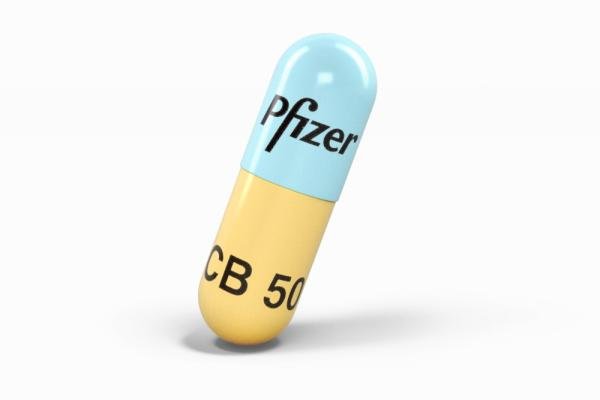Litfulo and Alcohol/Food Interactions
There is 1 alcohol/food/lifestyle interaction with Litfulo (ritlecitinib).
Caffeine Ritlecitinib
Moderate Drug Interaction
MONITOR: Coadministration with ritlecitinib may increase the plasma concentrations and effects of drugs that are primarily metabolized by the CYP450 1A2 isoenzyme. The mechanism is reduced clearance due to inhibition of CYP450 1A2 by ritlecitinib. When ritlecitinib (200 mg once daily for 9 days) was administered in combination with the sensitive CYP450 1A2 substrate caffeine, the mean peak plasma concentration (Cmax) and systemic exposure (AUC) of caffeine increased by 1.10- and 2.65-fold, respectively, compared to administration of caffeine alone. The interaction may be significant for sensitive CYP450 1A2 substrates or those that demonstrate a narrow therapeutic index.
MANAGEMENT: Caution is advised during the concomitant use of ritlecitinib with CYP450 1A2 substrates, particularly sensitive substrates or those that demonstrate a narrow therapeutic index. If concomitant use is required, clinical and laboratory monitoring may be appropriate whenever ritlecitinib is added to or withdrawn from therapy. The prescribing information for concomitant medications should be consulted to assess the benefits versus risks of coadministration and for any dosage adjustments that may be required.
References (1)
- (2023) "Product Information. Litfulo (ritlecitinib)." Pfizer U.S. Pharmaceuticals Group
Switch to consumer interaction data
Litfulo drug interactions
There are 809 drug interactions with Litfulo (ritlecitinib).
Litfulo disease interactions
There are 3 disease interactions with Litfulo (ritlecitinib) which include:
More about Litfulo (ritlecitinib)
- Litfulo consumer information
- Check interactions
- Compare alternatives
- Pricing & coupons
- Reviews (1)
- Drug images
- Side effects
- Dosage information
- During pregnancy
- FDA approval history
- Drug class: selective immunosuppressants
- Breastfeeding
- En español
Related treatment guides
Drug Interaction Classification
| Highly clinically significant. Avoid combinations; the risk of the interaction outweighs the benefit. | |
| Moderately clinically significant. Usually avoid combinations; use it only under special circumstances. | |
| Minimally clinically significant. Minimize risk; assess risk and consider an alternative drug, take steps to circumvent the interaction risk and/or institute a monitoring plan. | |
| No interaction information available. |
See also:
Further information
Always consult your healthcare provider to ensure the information displayed on this page applies to your personal circumstances.


